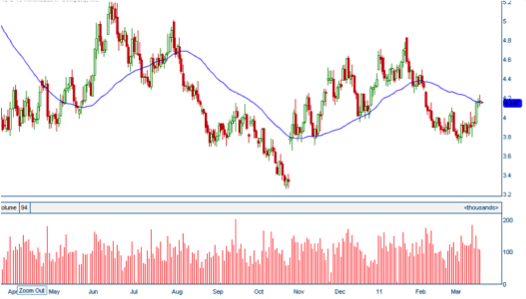Nuclear energy has always been controversial, but the recent catastrophic events in Japan are causing a major upheaval in how our future energy may be provided. As the heroic emergency response teams slowly gain control over the deteriorating reactors, how Japan, and for that fact the rest of the world. So that produce their low carbon emission energy is now up for debate.
In the illustration, coal, and fuel oil plants are predominant in the race. However, the greenhouse gases emitted from these types of plants. Do not meet the current emission tests set at the Kyoto agreement. Specifically, one alternative is Liquid Natural Gas (LNG) operated plants.
LNG is a natural alternative for nuclear power. As it has relatively low carbon emissions and is in plentiful supply. Coal and oil fuels are in high demand already, and as these resources are depleting at an alarming rate, future electricity sources will need to cater for an ever growing global population.
The markets are factoring in an increase in demand for LNG due to a short-term supply squeeze. The price for the commodity has risen from $3.73 on the 4th March to $4.16 on the 18th March – a gain of $0.43, or 11.5%.
But the 52 week high and low is $5.19 and $3.25 respectively. A 60% variance, provides great scope for trading opportunities.
In relation to price history, Natural Gas is severely deflated. It was trading as high as $13.69 on the 2nd July 2008, and $15.65 on the 13th Dec 2005.
For this reason, we perceive LNG to be at an undervalued price with plenty of upside potential.
This short-term sentimental drive is based on an expectation that Japan will need an alternative fuel to replace the lost output from the Fukushima nuclear power plant. But after this initial price rally, reality is that Japanese gas operated power plants were already operating at high capacity prior to the earthquake. This means there is limited ability to increase production.
To increase gas-fired electricity, the Japanese will need to replace existing infrastructure or build new facilities. So this isn’t an operation that can be accomplished overnight. These types of facilities will take years to establish, and so the demand on LNG on the short-term is not likely to increase dramatically. Subsequently, we don’t expect a long-term change in trend in the underlying commodity price.
In fact, Coal-generated electricity does have the extra capacity to increase production. For this reason, the demand for coal will increase in the short-term, as Japan will need to replace the production that has currently been lost. Although environmentalists will not be happy with this. The fact is that Japan needs to ensure there is power provided to industry, manufacturing, and its’ citizens. As a major trading partner of coal with Japan, Australia will benefit from the increased demand in the commodity. In particular, the stocks listed below.
Future demand for LNG should increase. Substantially will occur only if there is a cancellation and closure of Nuclear energy programs, as the fear factor has many countries evaluating their Nuclear energy programs, and with limited alternatives available. LNG has a great potential to fill that void. The supply to meet an increase in demand will come from Australia, and this bodes well for related stocks.
Therefore, investors should have Bullish exposure to Coal & LNG stocks in their investment portfolios. To ensure they benefit from future demand in the underlying commodities. We’ve outlined the major players listed on the Australian market in the following table:
|
Code |
Name |
Recommendation |
| BHP | BHP Billiton Ltd |
Buy |
| ORG | Origin Energy Ltd |
Buy |
| AGK | AGL Energy |
Monitor |
| SPN | SP Ausnet |
Reduce/Protect |
| APA | APA Group |
Reduce/Protect |
| DUE | Duet Forus |
Reduce/Protect |
| AEO | Austereo |
Reduce/Protect |
| WPL | Woodside Petroleum Ltd |
Hold |

